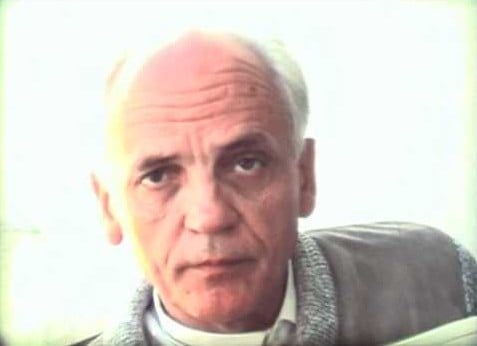
Image: Courtesy of YouTube.
The French surrealist poet and art critic Alain Jouffroy died on Sunday at the age of 87, his family announced yesterday.
Jouffroy who “rebelled against the absence of rebellion,” died at the Saint-Louis hospital in Paris, where he was hospitalized for two weeks, his wife Fusako Hasae told Le Figaro.
The writer rose to prominence as a novelist, essayist, art critic and magazine director. In 2007 he was decorated with the prestigious Goncourt Prize, one of the highest distinctions in French language literature, for his lifetime achievement as a poet.
Jouffroy was a leading art critic and wrote extensively on the likes of Joan Miró, Max Ernst, and Franco Gentilini.
Photo: Courtesy Sotheby’s.
Born in Paris in 1928, Jouffroy grew up to become an important figure in French intellectual circles. He was an admirer of the Belgian poet and painter Henri Michaux and a close friend of fellow writer and compatriot Louis Aragon.
His work was closely related to the French surrealists, despite a falling out with the torch-bearer of the movement, André Breton.
Jouffroy was close to a number of artists including Victor Brauner and Roberto Matta. He was at the forefront of several 1960s art movements and was responsible for introducing early Pop art and Beat Generation artists to French audiences.
Jouffroy served as the French Embassy’s cultural attaché in Tokyo in the 1980s.
Photo: japlusu.com
According to Agence France-Presse Jouffroy developed a strong passion for Asian culture in the 1970s. He was especially fascinated by Japanese art and literature. From 1983 to 1985 the poet worked as a diplomat, serving as the French embassy’s cultural attaché in Tokyo.
As an art critic Jouffroy published some 120 works including monographs and essays on artists such as Joan Miró, Max Ernst, and Franco Gentilini.